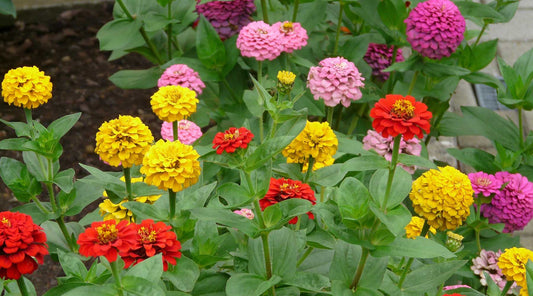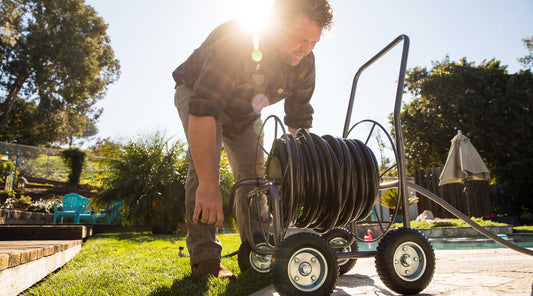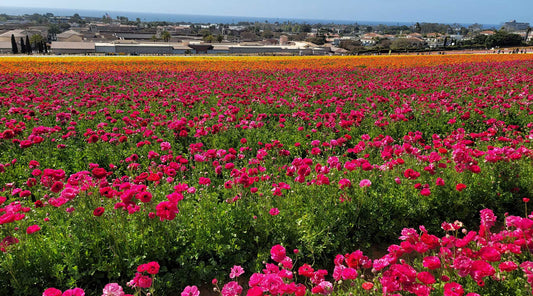Gardening is not just about planting seeds; it's about nurturing life, reaping the rewards of your labor, and connecting with nature in a profound way. If you're new to gardening, fear not – this guide will walk you through essential gardening tips for beginners. Whether you have a spacious backyard or just a small balcony, these tips will help you embark on your gardening journey with confidence and success.
Selecting the Right Plants
When you're just starting, it's crucial to choose plants that are well-suited to your environment. Consider the climate, the amount of sunlight your space receives, and the type of soil you have.
Choosing Suitable Plants:
Opt for plants that thrive in your region's climate. Research which plants are native to your area, as they are more likely to flourish.
Starting with Easy-to-Grow Varieties:
As a beginner, it's wise to begin with plants that require minimal care. Herbs like mint, basil, and chives, as well as sturdy plants like succulents and marigolds, are great choices.
Container vs. Ground Planting:
If you have limited space, container gardening is an excellent option. It allows you to control soil quality and easily move plants to sunnier spots. However, if you have a yard, planting directly in the ground offers more space and nutrients for your plants to thrive.
Essential Garden Tools and Equipment
Arming yourself with the right tools will make your gardening experience much smoother. Yard Butler has everything you need, whether you're just starting out or you've already got a great garden going. All of our tools are built to last.
Basic Gardening Tools:
A trowel, pruners, gloves, and a good garden hose with hose hanger or hose reel are your essential tools. These will help you dig, trim, protect your hands, and provide the hydration your plants need. The Terra Tough hand tools are perfect for container gardens and close-up work.
Optional Equipment:

As you gain experience, you might consider investing in tools like the Twist Tiller, or Deep Root Irrigator. These will help with tasks like preparing the soil and maintaining its health.
Preparing the Soil for Your Garden
Healthy soil is the foundation of a successful garden. It's where your plants get their nutrients and support.
Soil Testing:
Test your soil's pH and nutrient levels. This will help you understand if any amendments are needed for optimal plant growth.
Amending the Soil:
Improve soil quality by adding compost or other organic matter. This enhances drainage and provides essential nutrients for your plants.
Proper Drainage:
Ensure your soil has proper drainage to prevent waterlogging, which can harm plant roots. You can achieve this by mixing in sand or using raised beds.
Planting Techniques
Planting is an art. Follow these techniques to give your plants the best start.
Digging and Planting:
Dig holes that are deep enough to accommodate the root ball of your plants. Gently place the plant in the hole and fill it with soil, patting it down as you go.
Spacing and Depth for New Plants:
Follow spacing guidelines to avoid overcrowding. Planting at the right depth ensures that your plants establish strong root systems.
Watering After Planting:
After planting, water your new additions thoroughly. This helps settle the soil around the roots and promotes initial growth.
Watering and Maintenance of Your New Garden
Consistent care is key to a thriving garden.
Watering Schedule:
Stick to a regular watering schedule, keeping in mind that different plants have different water requirements. Water deeply but less frequently to encourage deep root growth.
Mulching Benefits:
Apply a layer of mulch around your plants to retain moisture, suppress weed growth, and regulate soil temperature.
Weeding and Pruning:
Regularly weed your garden to prevent unwanted competition for nutrients. Additionally, prune dead or overgrown branches to encourage healthy growth.
Dealing with Common Challenges in the Garden
Pests, diseases, and nutrient deficiencies can challenge even experienced gardeners. Here's how to handle them.
Pest Management:

Identify common pests in your area and explore organic methods to control them. Neem oil, garlic spray, and companion planting are effective options. If you have problems with vermin digging up your yard the Gopher Bait Applicator is a great way to get poison right into the tunnels so pets and other wildlife stay safe.
Disease Prevention:
Ensure proper spacing between plants to improve air circulation and prevent the spread of diseases. Also, avoid overhead watering to minimize moisture on leaves.
Nutrient Deficiencies:
Recognize signs of nutrient deficiencies, such as yellowing leaves or stunted growth. Adjust your soil's nutrient balance using organic fertilizers or compost.
Harvesting and Enjoying the Fruits of Your Labor
One of the most rewarding aspects of gardening is harvesting the produce you've nurtured.
Knowing When to Harvest:
Learn the signs of ripeness for different crops. For instance, tomatoes should be firm and fully colored, while herbs are best harvested before flowering.
Harvesting Techniques:
Use clean shears or scissors to avoid damaging plants. Cut produce cleanly to encourage continued growth.
Sharing Your Bounty:
Spread the joy of gardening by sharing your surplus produce with friends, family, or neighbors. It's a wonderful way to build community connections.
Learning and Growing
Gardening is a journey of continuous learning and growth.
Keeping a Garden Journal:
Document your progress, observations, and experiments in a garden journal. This will help you track successes and learn from any challenges.
Continued Learning:
Explore gardening books, online resources, and local gardening clubs to expand your knowledge. Learning from others' experiences can be invaluable.
Experimentation and Adaptation:
Don't be afraid to try new plants, techniques, or layouts. Gardening is a dynamic process that encourages experimentation and adaptation.
Reap the Rewards of Gardening
As a beginner gardener, you're embarking on a fulfilling and satisfying journey. By selecting the right plants, mastering essential techniques, and learning to overcome challenges, you'll soon find yourself immersed in the beauty and wonder of nature that you've nurtured with your own hands. Remember, every leaf you tend and every blossom you coax into existence brings you one step closer to becoming a seasoned gardener. Happy gardening!






